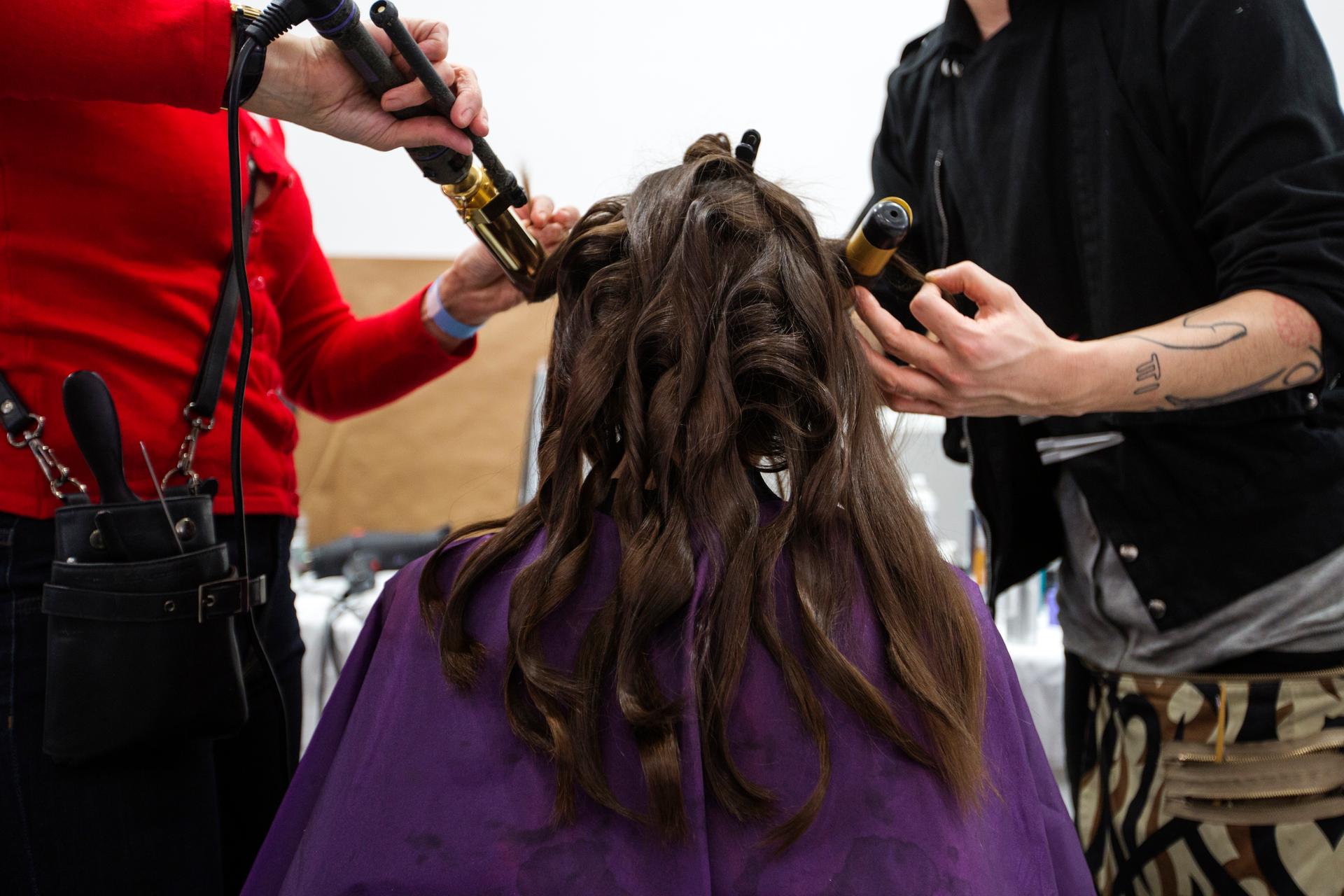New research shows that beauty and composure can have concrete financial benefits
A model has her hair done backstage prior to a presentation of the Rodarte Autumn/Winter 2013 collection during New York Fashion Week, February 12, 2013.
A bad hair day can ruin your entire week. As someone whose hair has been in a constant state of crow’s-nest negligence since about 2005, I am well aware of this. But what happens when you get out of bed looking fabulous and put-together? It's more than just a spring in your step, according to research done by Peter Belmi and Margaret Neale of the Stanford School of Business.
Feeling beautiful leads you to believe that you belong to a higher social class.
The study asked respondents how attractive they felt on a particular day, and then quizzed them on their attitudes about class and inequality. Belmi and Neale found that people who believed they were looking pretty darn good at that specific moment also felt that they belonged to a higher social strata. This feeling waxed and waned; if you wake up feeling pretty, you believe you’re worth more, but if you wake up feeling dumpy and plain, you believe you’re lower class.
Belmi thinks this is because societies usually define attractiveness based on what the upper classes look like. In Medieval and Renaissance Europe, plump bodies with pale skin were the height of glamor, precisely because being plump and fair-skinned meant you were rich enough not to have to work in the fields all day. Look at Rubens’ paintings of the idealized female form for evidence. Belmi says that even the term ‘redneck’ was most likely coined as an insult against sunburned farm workers, too poor to stay inside. This was also true in the Philippines, where he grew up.
“My mom was always insistent on putting whitening products on her skin, looking more fair, because that’s the standard of beauty in the Philippines. The fairer you are, the more people think you’re beautiful, and the more people respect you,” Belmi adds.
Viewed this way, trying to be more attractive isn’t necessarily superficial. There are definite advantages to being really, really, ridiculously good-looking. Belmi explains that you receive a host of resources when you’re handsome or pretty. If you’re not wealthy, then you can at least gain access to the upper class by being lovely to look at. In a Newsweek survey, hiring managers said that physical attractiveness was the third most important characteristic they looked for when trying to fill a job. Just behind confidence, and more important than education. This might be why, when the economic recession hit, the beauty industry was one of the few sectors of the economy that actually grew during the downturn.
It would be nice if the world was a complete meritocracy, Belmi says, and if what you looked like didn’t affect how you were judged or categorized. But that’s just not the world we live in. According to Belmi, “the people who say that the world’s a meritocracy, are usually the ones on the top. And it makes sense, because the system works for them.”
So until the earth becomes free of inequality and class division, you’re probably going to see a lot more ads like this.
oembed://https%3A//www.youtube.com/watch%3Fv%3DhV0h7faHkJM
This story first aired as an interview on Innovation Hub with Kara Miller.
We want to hear your feedback so we can keep improving our website, theworld.org. Please fill out this quick survey and let us know your thoughts (your answers will be anonymous). Thanks for your time!
